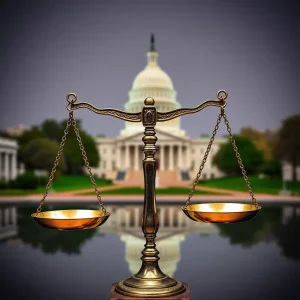COLUMBIA, S.C. – A Setback for School Voucher Program
In a significant ruling, the South Carolina Supreme Court has officially denied Governor Henry McMaster’s request for a rehearing regarding the controversial school voucher program, marking yet another twist in a legal battle that has raised eyebrows across the state. The announcement came Thursday, following a previous ruling in September that deemed a central portion of the Education Scholarship Trust Fund program unconstitutional.
Understanding the Voucher Program
To give you a little background, the Education Scholarship Trust Fund program was designed to provide state funds of up to $6,000 annually for families with lower incomes. This money was intended to assist with various school-related expenses, including but not limited to school supplies, tutoring, and fees for students attending schools outside their designated public school districts.
However, a major aspect of the program allowed families to use these funds toward private school tuition. This specific provision has been the root of contention, as the South Carolina Supreme Court ruled that using state money for private or religious schools directly violates the state constitution.
Court’s Decision: A Closer Look
In a split decision of 3-2, the court indicated that while the funds could be allocated for allowable expenses, they cannot be used to benefit private education systems. Governor McMaster, feeling strongly about the importance of the program, quickly filed a petition for a rehearing. He argued that the court’s understanding of the funds as a “direct benefit” is fundamentally flawed. He expressed confidence in the legislative intent, stating, “The legislature worked very hard on determining a way to ensure this would be deemed an indirect benefit.”
The Aftermath of the Ruling
After the court’s decision on Thursday, Governor McMaster’s office expressed disappointment, describing it as a “heartbreaking and devastating blow” for thousands of families who were looking forward to utilizing the scholarship. A spokesperson shared that many children would have to leave their friends and classmates behind due to this ruling.
Reactions from the Community
On the flip side, reactions from various education advocacy groups and community members celebrated the court’s reaffirmation of its previous decision. Sherry East, President of the South Carolina Education Association, commented on the significance of the ruling, saying, “We are grateful for the recent reaffirmation by our state’s Supreme Court, which has made it clear, not once, but twice, that voucher programs violate our state’s constitution.” She highlighted that public funds should remain dedicated to the state’s public schools that serve over 95% of South Carolina’s children.
Looking Ahead
This decision raises critical questions about the future of school funding in South Carolina. Will this ruling impact the legislative agenda for the upcoming sessions? How will it shape the dialogue around educational choice and accessibility for families in the state?
As the dust settles from this ruling, it is clear that the conversation around school vouchers will continue to spark debate among lawmakers, educators, and families alike. The road ahead appears uncertain, but one thing is for sure—the implications of this ruling will resonate throughout the state for some time.
For anyone following this story closely, it’s essential to stay informed about ongoing developments in South Carolina’s education policy landscape. The implications for both families and educators are profound, and as new updates arise, the dialogue surrounding public education versus private funding will undoubtedly evolve.


























